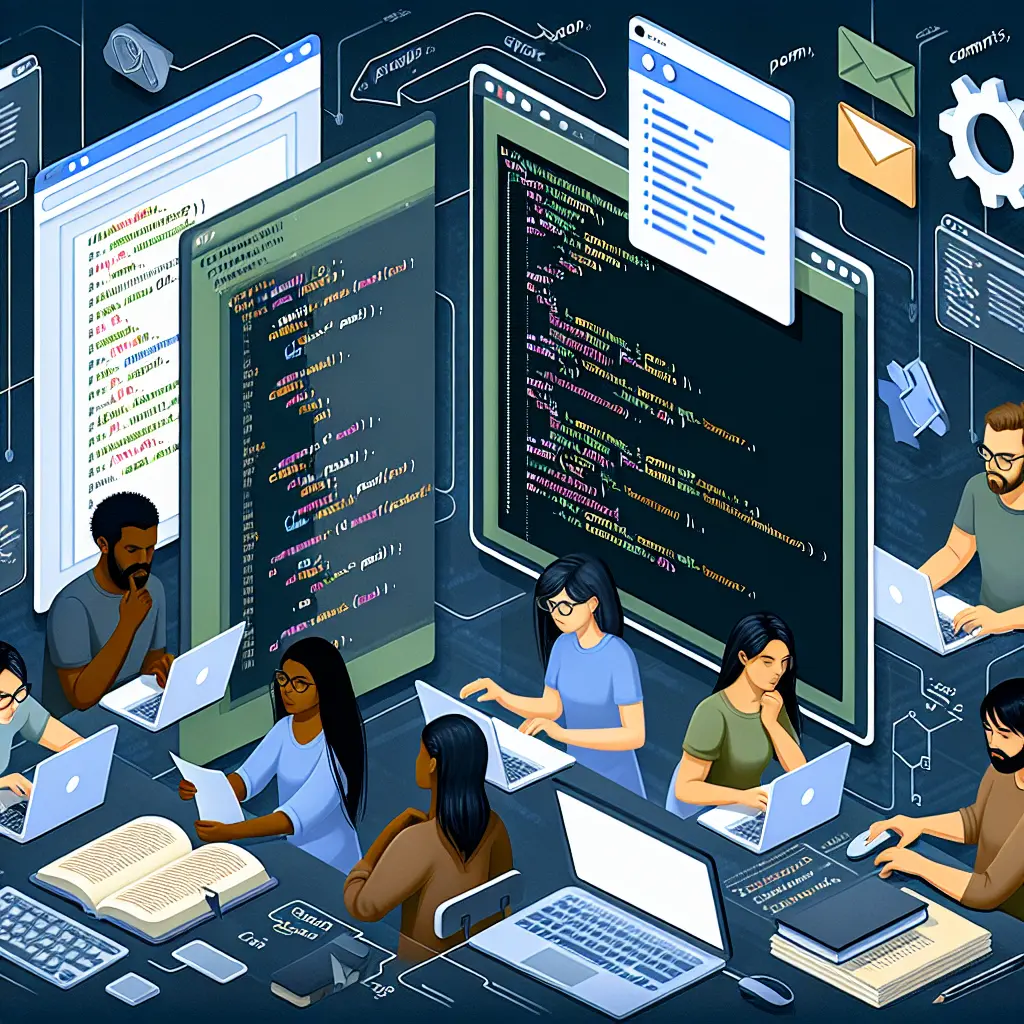In an era where technology is deeply intertwined with everyday life, the importance of digital inclusivity cannot be overstated. Open source software plays a pivotal role in this context, offering a pathway to greater technology accessibility and digital equity. With the open source community at the forefront of innovation, inclusive technology becomes more achievable, bridging the digital divide and ensuring equitable technology access for all.
The benefits of open source extend beyond cost-effectiveness; they foster tech inclusivity by encouraging community-driven software development. This collaborative spirit is the backbone of open source innovation, allowing diverse voices to contribute to the creation of inclusive software that serves a wider audience. As digital transformation accelerates, the need for software accessibility grows, making it crucial for developers and organizations to focus on inclusive software development.
Open source collaboration empowers individuals and communities to tailor technology to their unique needs, thus promoting software accessibility in ways that proprietary solutions often overlook. This democratization of technology fosters a culture where anyone can participate, innovate, and influence the tools they use, ultimately driving forward the mission of tech inclusivity.
By leveraging the strengths of open source software, stakeholders can address systemic barriers to access and champion the cause of digital inclusivity. As we explore the role of open source in fostering a more inclusive digital landscape, it becomes evident that these collaborative efforts are instrumental in narrowing the digital divide. This journey into the heart of open source's contribution to digital inclusivity promises insights into how community-driven initiatives can transform technology for the betterment of society.
One of the recent developments in open source is the introduction of Open Source Hardware Certifications for July 2024. These certifications represent a significant stride toward ensuring that hardware, like software, is accessible to a broader audience. By offering certifications, the open source community acknowledges and verifies hardware that adheres to open principles, promoting transparency and inclusivity. This move helps dismantle barriers to technology access and ensures that innovations in hardware can reach and benefit more people, especially those in underserved communities.
Addressing Cybersecurity Concerns in Open Source
While open source software champions inclusivity, it is not without challenges. A recent issue has been the proliferation of a hacker 'ghost' network on GitHub, which spreads malware through a network of over 3,000 accounts. Despite such challenges, the open source community remains resilient. These incidents highlight the need for robust security measures within open source projects to maintain trust and ensure that inclusivity does not come at the cost of security.
The practice of Delayed Open Source Publication (DOSP) provides an intriguing intersection between proprietary and open source models. Initially distributing software under a proprietary license before releasing it as open source allows developers to refine their work while maintaining control over its initial distribution. This strategy can foster inclusivity by eventually opening software to a wider audience, allowing for community-driven enhancements that address diverse needs.
An article discussing five reasons to adopt open source software emphasizes aspects such as privacy concerns, customization, and a sense of community. These elements underscore the core values of the open source movement: inclusivity and collaboration. By allowing users to modify and adapt software to meet their unique needs, open source software empowers individuals and communities to contribute to its development, fostering a culture of participation and innovation.
Nix offers an example of how open source tools can enhance digital inclusivity by promoting reliable system configurations. Nix's approach to package management is both declarative and reproducible, ensuring that systems are reliable and accessible. This capability is crucial for educational institutions or community projects with limited resources, as it provides a stable foundation upon which they can build customized systems tailored to their specific needs.
Challenges in Maintaining Open Source Support
Despite its many benefits, open source software faces challenges in maintaining support across different platforms. For instance, LightBurn's decision to discontinue support for Linux users serves as a cautionary tale. This situation highlights the tension between resource constraints and the commitment to inclusivity. It is vital for open source communities to strategize sustainable support models that uphold their inclusive ethos without overextending their resources.
Open source projects like Raspberry Pi exemplify how technology accessibility can be integrated into educational contexts. With myriad applications ranging from music players to intelligent assistants, Raspberry Pi projects encourage hands-on learning and creativity. By providing affordable and versatile tools, open source initiatives empower students and educators to explore technology's potential, fostering an environment where digital literacy thrives.
In a notable move toward promoting collaboration within the gaming industry, Activision has released open source data for one of Call of Duty: Warzone's largest maps. This initiative allows developers and researchers to access game data for analysis and development purposes. By opening up such resources, Activision not only supports academic research but also encourages a more inclusive approach to game development.
The renewed interest in the Go programming language illustrates another facet of open source's impact on tech inclusivity. Known for its simplicity and efficiency, Go enables developers to create scalable solutions across various applications. Its open source nature invites contributions from diverse backgrounds, fostering a collaborative environment where innovative ideas can flourish.
Open source software plays a transformative role in promoting digital inclusivity and bridging technology gaps across communities. Let's recap some critical points:










Leave a Comment